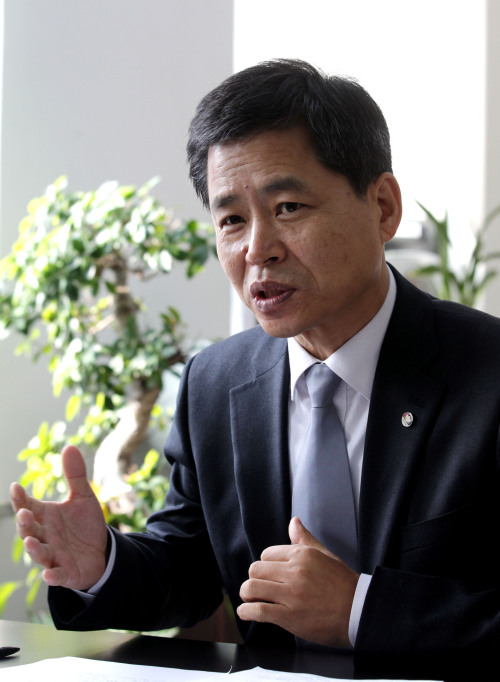The Korea Teachers and Education Workers’ Union is expected to make a major turn from its hawkish attitude as its new leader declared an end to the “honeymoon period” with liberal educational superintendents.
The declaration by Jang Suk-woong is likely to forge a reconciliatory atmosphere between the progressive KTU and the conservative government of President Lee Myung-bak. The teachers’ group has opposed the major education policies of the Lee government, which in turn has hardened its stance on the KTU.
In his interview with the Yonhap news agency and the JoongAng Ilbo, the newly-elected KTU chief said it is time his group took an objective look at the performances of the liberal superintendents.
“If they aren’t good enough, we won’t work with them anymore. The days we supported liberals for the sake of political ideology are gone,” he said.
In particular, he denounced Seoul superintendent Kwak No-hyun’s ban on corporal punishment.
The measure, which came into force in September, bans teachers from administering physical punishment under any circumstances. Instead, teachers are restricted to either admonishing the students or providing counseling. While many have welcomed the guideline as respecting students’ rights, some teachers complained that they had lost control of students in the classroom.
 |
Jang Suk-woong |
“Kwak did not consult with teachers beforehand. He left us few options and some are experiencing immense confusion in dealing with students,” Jang said.
He offered a warm view of the conservative administration. He said he will cease the group’s protest against Education Minister Lee Ju-ho for suppression of its members.
“We want to mend ties with the administration once more. I am planning to visit Lee soon,” he said.
“I admit that the KTU has focused on picking out the flaws of the educational policies instead of working on improvements. That’s where we will put our efforts from now on,” he said.
All eyes are now on whether the amicable approach will bring an end to the years-long rift between the KTU and the administration.
About 17,000 KTU members in June 2009 issued a statement denouncing President Lee’s four-river refurbishment project and other policies. The administration “retaliated” by imposing heavy punishments or dismissing them for violating civil servants’ obligation to remain politically neutral. Also, many courts convicted union leaders for not remaining politically neutral.
In April, Rep. Cho Jeon-hyeok of the ruling Grand National Party disclosed the names of the KTU members despite a court ban, dealing a major blow to its membership ― the number of its members has shrunk to 61,000 from 94,000 at its height in 2003. At the end of last year, collective bargaining between the KTU and the Ministry of Education, Science and Technology broke down within five minutes of starting.
“The election of liberal superintendents has shown that people want changes in the educational circle. We will work to mediate the two different sides,” said Jang. “We will establish a task force with the conservative teachers’ union, the Korean Federation of Teachers’ Association, to lead the progress.”
By Bae Ji-sook (
baejisook@heraldcorp.com)








